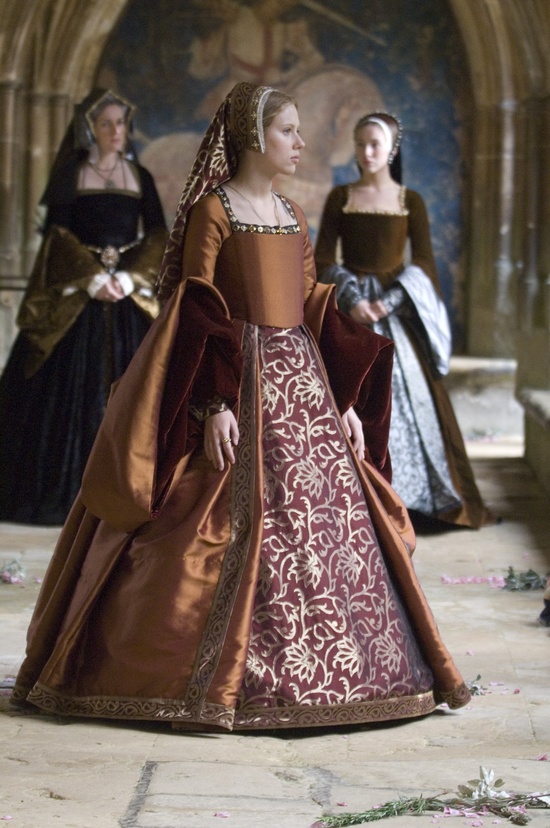
DevilInspired Medieval Dresses March 2013
Dress - Medieval, Europe, Fashion: The dress of Europeans during the years from the collapse of the western part of the Roman Empire in the 5th century ce to about 1340 was slow to change and was largely standardized over a wide area. Clothes for men and women were similar, being sewn albeit crudely and loosely cut. A shirt or chemise and braies—that is, a roughly fitting kind of drawers.
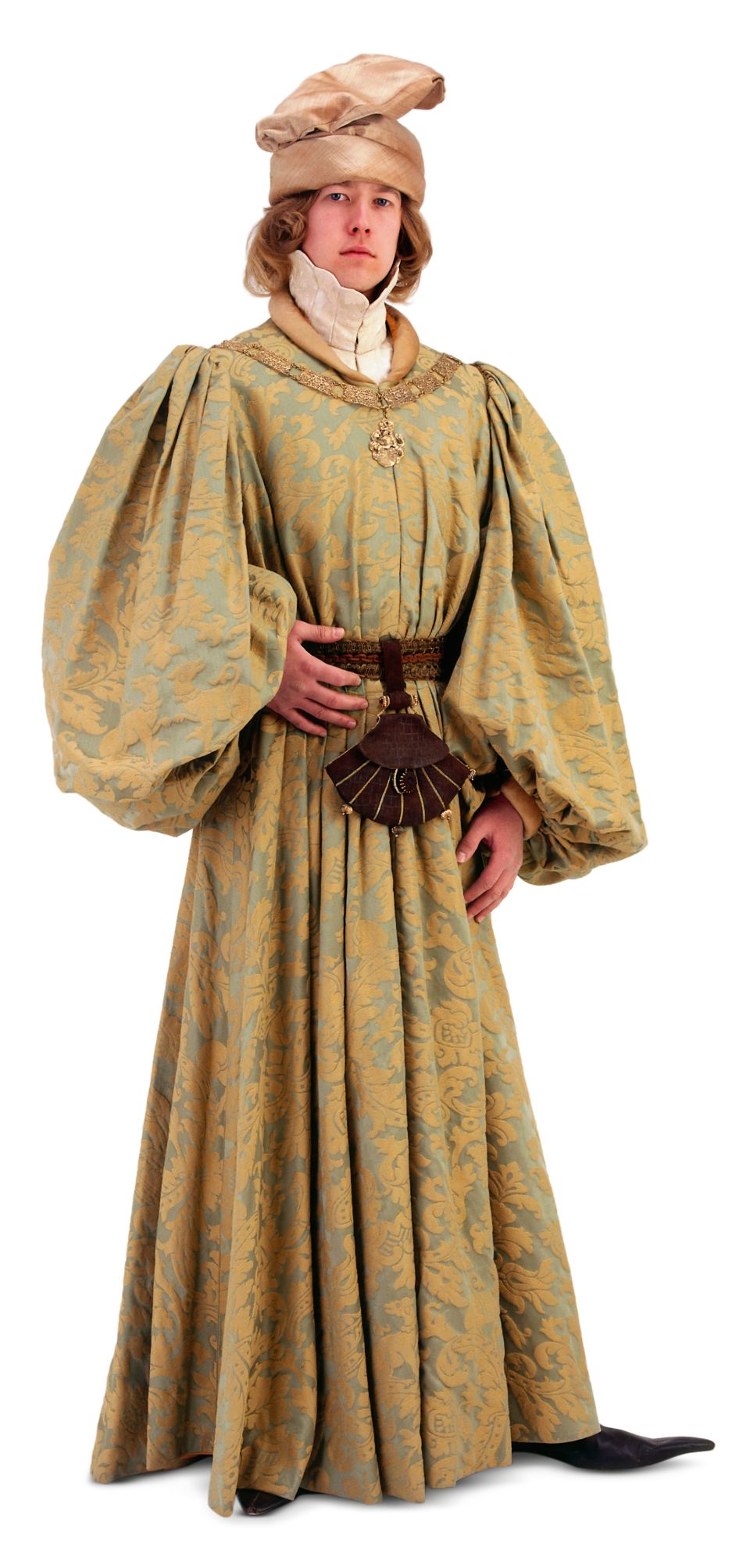
Medieval Fashion Facts Medieval Costumes DK Find Out
Free Shipping Available On Many Items. Buy On eBay. Money Back Guarantee! But Did You Check eBay? Check Out Womens Clothing Medieval On eBay.
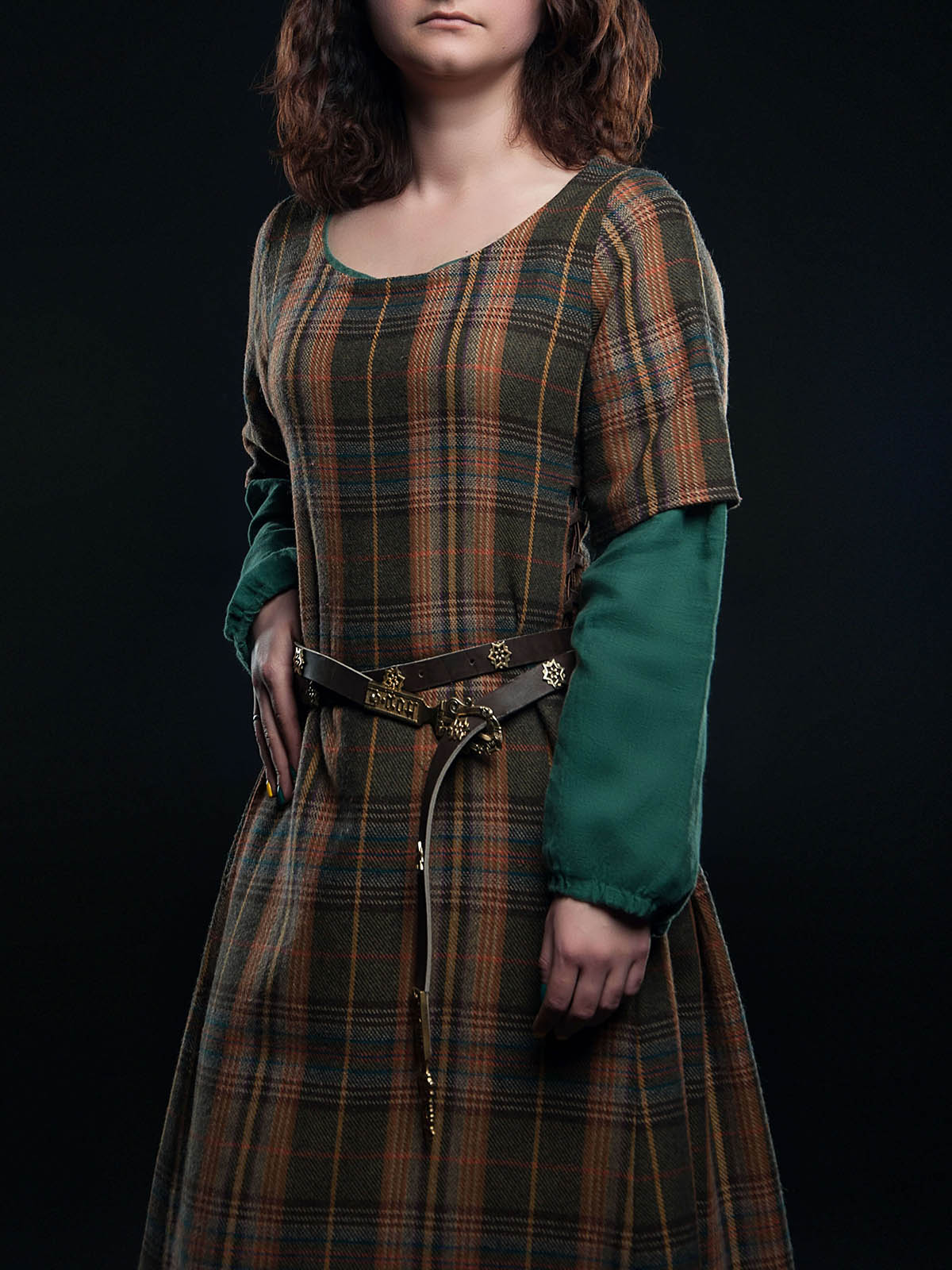
Middle ages women's clothing
Shoes were long and pointed. In the late fourteenth century the external corset came into fashion. Although women's gowns were fastened in front up to the throat in the early medieval period, by the latter end of the period necklaces encircled the now bared neckline. Dresses also became full around the hips using padded rolls.

Pin by Gabriella on medieval fashion Medieval clothing, Medieval fashion, Historical clothing
Medieval Dresses, Renaissance Dresses, and Medieval Wedding Dresses Pearson's Renaissance Shoppe is your source for beautiful Medieval Dresses and Renaissance Dresses. Spanning the Dark Ages to the times of Pirates ruling the seven seas, our Renaissance costumes for women are authentic and comfortable. But we shouldn't get caught up with just medieval knight armor or pirate wench costumes.

romano celtic costume Google Search Early middle ages, Middle ages, History
The Early Middle Ages, once known as the Dark Ages or medieval times, refers to that period in European history after the fall of the Roman Empire. When the Roman Empire fell in 400 CE (or AD), the once-unified continent fell into disarray. Few images of clothing are left to us of that period, and real information is scanty at best.

Middle ages women's clothing Medieval clothing women, Clothes for women, Middle aged women
Fashion for Middle Class Women in The Medieval Age. The clothing of the Middle Ages, like everything else was decided by the pyramid of power. The pyramid of power was the Middle Ages Feudal System. Medieval clothes provided information about the rank of the person wearing them. From the 11th through the 14th centuries, medieval clothing.

The clothing and different ranks of people in the Middle Ages. Medieval ages, Medieval england
Article. As in just about any other period of history, clothing in the Middle Ages was worn for necessity, comfort, and display. Bright colours and rich decorations made for a striking medieval wardrobe, at least among the wealthy, although there was a surprising similarity in clothes for different social classes and the sexes.

Women Clothing Ideas Women's Clothing Middle Ages
Silk. Luxurious and costly, silk was used only by the wealthiest of classes and the Church. Hemp. Less costly than flax, hemp and nettles were used to create workaday fabrics in the Middle Ages. Though more common for such uses as sails and rope, hemp may also have been used for aprons and undergarments. Cotton.

Fashion History of the High and Late Middle Ages Medieval Clothing Bellatory
In the High and Late Middle Ages, European clothing began to evolve into what we think of today as fashion. The cut, shape, style, and decoration of clothing changed at a much faster pace than in the Early Middle Ages (sometimes known as the Dark Ages), when styles varied little over time. While we think of fashion changes occurring from year.

Pin on Medieval Fashions
Medieval Women's Clothing Middle Ages clothing and fashion, including the Medieval Women's Clothing, like everything else was dictated by the Pyramid of Power which was the Middle Ages Feudal System. Medieval clothes provided information about the status of the person wearing them. The clothing and fashion during the Medieval era of the Middle.

Medieval peasant woman. Double click on image to ENLARGE. Medieval peasant, Medieval peasant
Womens - Middle Ages Clothing. Women of the lowest class wore shapeless dresses made out of cheap woollen cloth. The dresses were always basic colours like off white, grey, brown and red. Over their dresses they wore a shawl which hung from the shoulders down to the knee. Women also wore wimples to cover their hair, neck and ears.
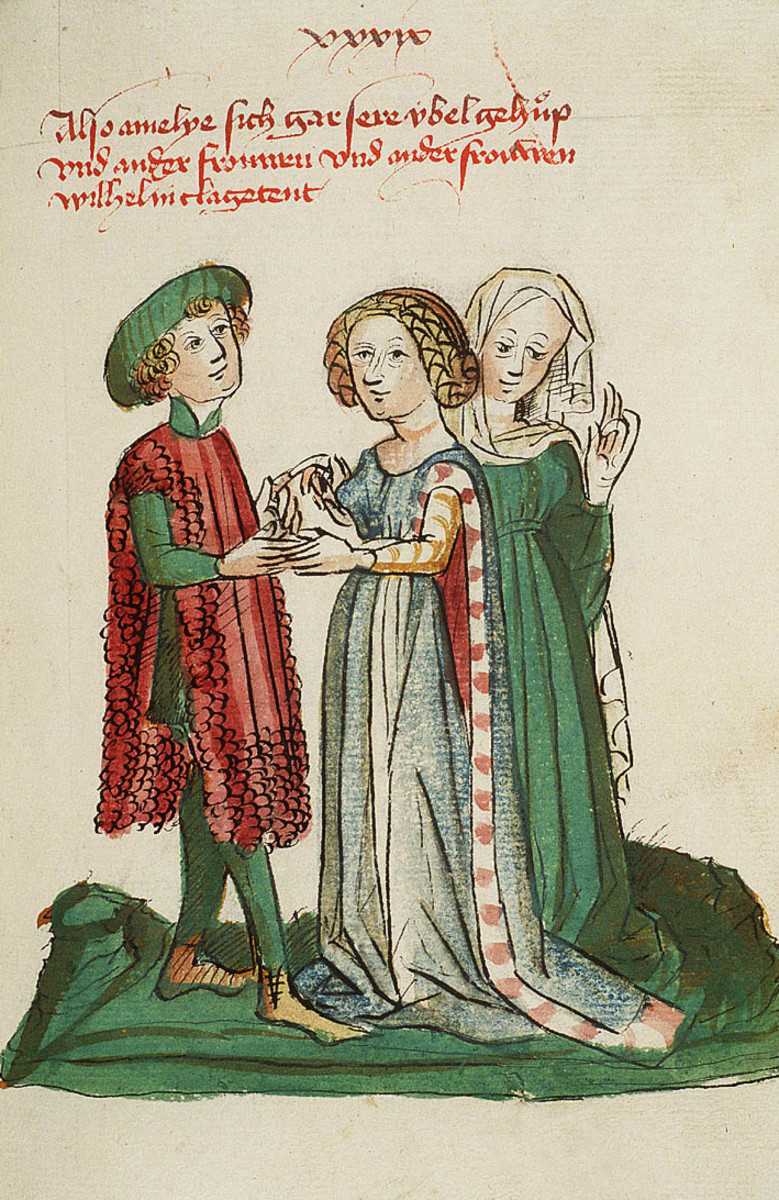
Fashion History of the High and Late Middle Ages Medieval Clothing Bellatory
English medieval clothing. The Medieval period in England is usually classified as the time between the fall of the Roman Empire to the beginning of the Renaissance, roughly the years AD 410-1485. For various peoples living in England, the Anglo-Saxons, Anglo-Danes, Normans and Britons, clothing in the medieval era differed widely for men and.
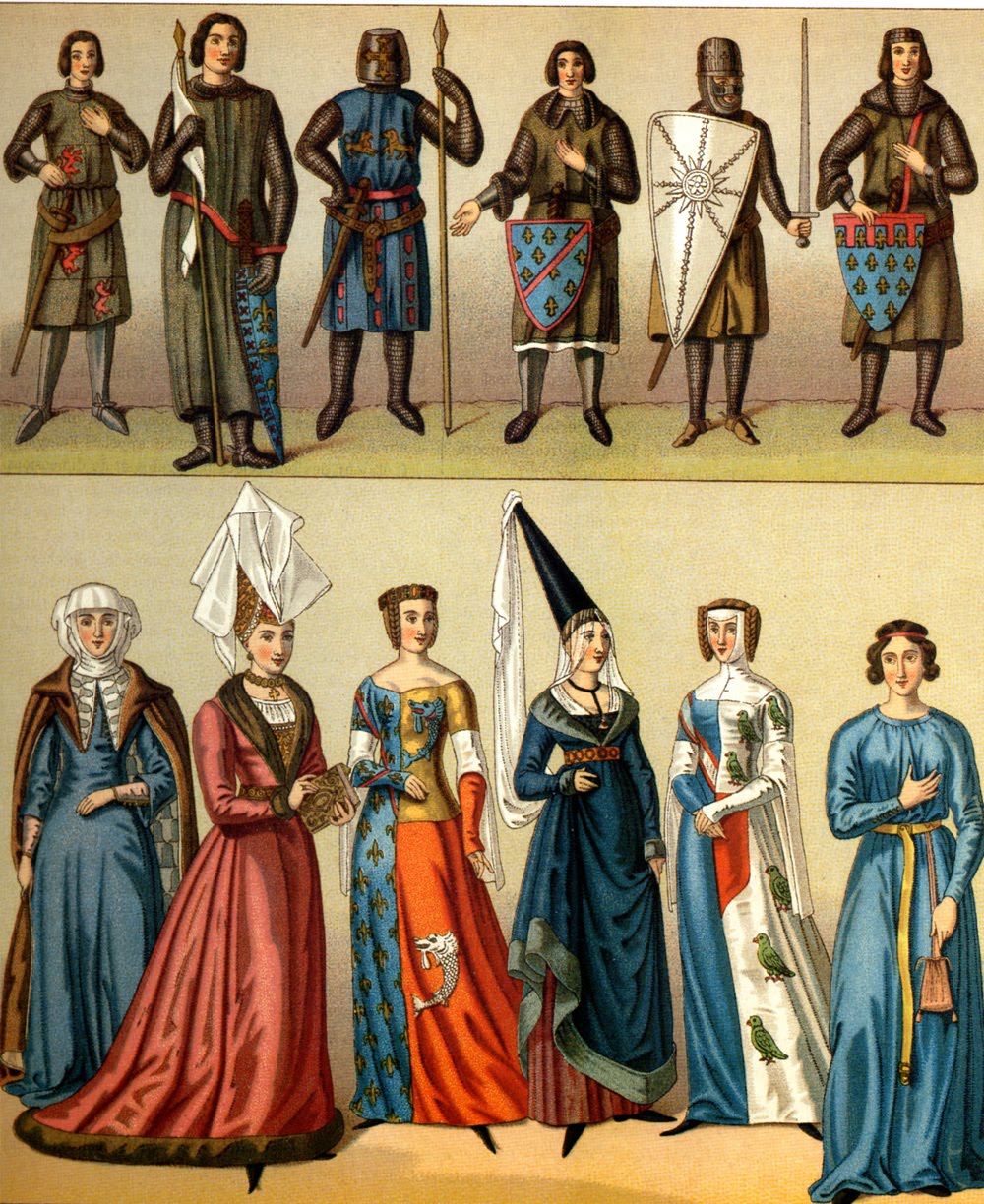
Historical Fiction Resources Fashion in the Early Middle Ages
These pictures (above) show the costume worn in the early medieval period by the rich. The man is wearing a woollen tunic, belted at the waist that has been embroidered around the hem and sleeves. Over this he has a woollen cloak fastened with a brooch. The man's wife is wearing a woollen dress, tied at the waist over a white linen underskirt.

DeviantArt More Artists Like 1872 Trouville in spring by AprilMo Medieval clothing
In the Middle Ages, ladies wore multiple layers of clothing, including a hose, a long underdress called a chemise, and a tunic or kirtle over the chemise. Noble women's dresses were made from fine.

How Did People Make Fabric in the middle ages and How Did They Color It. Middle ages clothing
For womens medieval clothing expertly handmade with incredible detail and elegance, choose Your Dressmaker. From medieval peasant to queen, we carry the Renaissance dresses, medieval cloaks, historic corsets, petticoats, chemises, and medieval gowns you need, custom tailored to your unique size. Let Dressmaker help you transform into the character of your dreams for your historic reenactments.

Image Ancient_Times_RomanChristian.JPG fashion history LoveToKnow Fashion history
Women, Fashion, and the Middle Ages: 1300-1500. Images from the Luttrell Psalter (14th Century) and the Queen Mary Psalter (14th Century) Long, draping, formless garments give way to tighter, more form fitting women's dress. The changing of silhouette in women's fashion is immediately apparent when looking at a timeline of the middle ages.